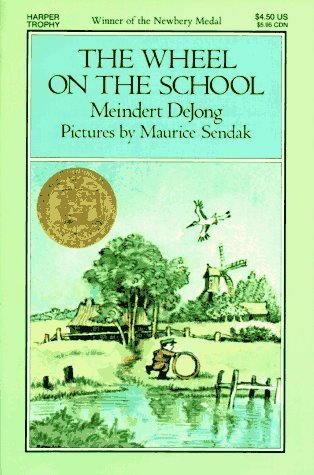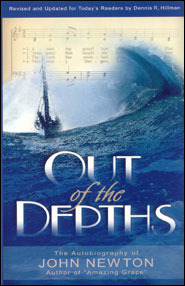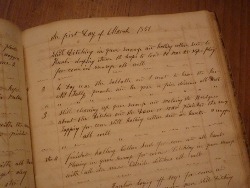Hal Young's Blog, page 57
March 2, 2011
A Matter of Honor
Is there a place for Christians to pursue honor, or is that something which is worldly, tainted, something to be put aside in favor of more spiritual pursuits?
Recently I was invited to speak at the induction ceremony for a high school honor society, so I looked into the idea. What I found might be a surprise.
First, it is appropriate for believers to seek and to give honor. The Bible speaks about honor as a good thing, given by God, and in fact commanded to us. We are told to honor our fathers and mothers "that your days may be long." Peter enjoins us to "honor the king," our civil authority, and Paul tells us that faithful church leaders are "worthy of double honor."
In fact, God tells us to actively seek out things which are worthy of respect.
Finally, brethren, whatever things are true, whatever things are noble, whatever things are just, whatever things are pure, whatever things are lovely, whatever things are of good report, if there is any virtue and if there is anything praiseworthy—meditate on these things.
We should make it a practice to find and praise honorable things and honorable people. Honor is a good thing.
At the same time, we need to have an objective view of our own accomplishments. We are prone to undeserved pride. I read that an international study of 65 countries found American students only rank 17th in reading literacy, 23rd in science, and 30th in math. Our kids have great self-esteem, though.
Frequently homeschooled students have the opposite problem. Although their test scores average around the 80th percentile or better, well above their public school counterparts, they don't have the daily comparison of a classroom environment to reinforce them. Because they can study up to their potential, rather than coasting at the head of an average class, they feel uncertain of their ability. They don't give themselves the credit they deserve.
In Romans 12:3, Paul writes, "I say to everyone among you, not to think of himself more highly than he ought to think, but to think with sober judgment, each according to the measure of faith that God has assigned." We all have goals we miss, and goals we exceed. We should be honest about both of them.
But better yet, we ought to refer the whole matter back to God. The gifts and talents and accomplishments which God gives us, and results of our stewardship of them, are not about us. They are totally about Him, His glory, and His kingdom.
The prophet Jeremiah recorded,
Thus says the LORD: 'Let not the wise man boast in his wisdom, let not the mighty man boast in his might, let not the rich man boast in his riches, but let him who boasts boast in this: That he understands and knows Me, that I am the LORD who practices steadfast love, justice, and righteousness in the earth. For in these things I delight,' declares the LORD.
And when we accept both the praises and the troubles that come as gifts of a loving and sovereign God, we can pursue without grasping. We can rest in the knowlege that the one who honors God will be honored by Him in turn.
February 27, 2011
Wrestling With An Idea
 Occasionally I open the news and think, "Have. We. Lost. Our. Minds?"
Occasionally I open the news and think, "Have. We. Lost. Our. Minds?"
This week, I read that the best way to show repect to a girl is to gouge her in the eye, slam her to the ground, and lay on top of her. That's what ESPN columnist Rick Reilly thinks.
Joel Northrup is a teenaged wrestler who said he didn't think so. He was willing to risk a state title to prove it. While he defaulted the match, I think Joel is the winner.
Joel is a homeschooler wrestling with a public high school team in Iowa. In the first round of the state championship last week, Joel was scheduled against Cassy Herkelman, a girl competing in the same weight class. Like many states, Iowa's high school wrestling is co-ed, and there was another female wrestler competing in the same tournament. Rather than get down and violent with a girl, Joel decided to default the match.
"I have a tremendous amount of respect for Cassy and Megan and their accomplishments. However, wrestling is a combat sport and it can get violent at times. As a matter of conscience and my faith I do not believe that is appropriate for a boy to engage a girl in this manner," he said. "It is unfortunate that I have been placed in a situation not seen in most other high school sports in Iowa."
Dr. Albert Mohler at Southern Baptist Seminary had an excellent commentary on the situation, including links to several source stories . (link: http://www.albertmohler.com/2011/02/22/boys-wrestling-girls-a-clash-of-worlds-and-worldviews/) This is my two cents.
Our sons need to be ready to compete against girls, and later women, both in academic and career circles. I don't think competition is the problem here. There is no reason to balk at good, serious competition in the classroom or the office or the factory floor, in any field where both men and women are present.
I don't see a problem with boys and girls completing at tennis, golf, softball, or most other sports. When I was in college, I lived in an apartment dormitory which also housed the women's softball team. They were nice girls, but when they were throwing balls around on the front lawn, it was like cannon fire out there. No way was I playing catch with those ladies. They call it GRRL POWER in some circles. I'm not worried about their ability to compete if they want to.
I might even differ with Joel on the "combat" issue. Is fencing a problem? Or shooting sports? I'm better with a long gun, but I think my wife is a better pistol marksman.
The issue is not competition generally nor sports, in most cases, nor even the combative nature of it. The problem is inherent to the nature of wrestling.
I don't think the problem is purely sexual, either. Oh, that's part of it, for certain. Wrestling is the only sport I know where sexual assault has been alleged during competition. I'm not making this up – a high school wrestler actually filed a criminal complaint that he'd been sexually assaulted by an opponent using a hold which I won't describe except to say I understand the victim's problem.
Wrestling involves a lot of very close contact, and lots of very intimate grappling. As a practical matter, I don't think even a hormonal teenager has much chance to think sexually during an intense three-minute match where he has to avoid getting thrown and pinned himself. But I'm probably underestimating the young male mind, and it's not good in principle, anyway.
The ones I'm worried about are the girls. Not Cassy, really. She and her father apparently made a decision they are happy with. Let them deal with it. I'm worried about the other girls, the ones who aren't wrestling.
The problem is that wrestling is a sport that requires total, overwhelming dominance of an opponent. That's how you win. And I don't ever want my son to ever grow accustomed to the idea that grappling with a woman, forcing her to the ground, and physically overwhelming her in spite of her resistance somehow makes him a winner.
That's why the fact that this is a controversy – the fact that anyone even thought for a minute that allowing this situation was a step forward for women – just astounds me. If you came up on a young man pinning a struggling girl to the ground in a park, you'd call police. If the same thing was happening in front of a thousand spectators with a referee, you call it sport.
Some of us have definitely lost our minds. Joel Northrup, thank you, still has his.
Image courtesy of Marie-Lan Nguyen. It is a photo of a ca. 470 BC Attic Greek alabastron showing an Amazon wearing trousers and carrying a shield.
February 22, 2011
The Carnival of Homeschooling!
 Welcome to the Carnival of Homeschooling!
Welcome to the Carnival of Homeschooling!
Liberty, and especially the freedom to parent our children as we choose, is something that can't ever be taken for granted. After hearing this week about a family in Spain being sentenced to jail for successfully homeschooling their child, it was a pleasure to see homeschoolers fighting for their rights in Illinois. Dave at Home School Dad is rejoicing It's done! It's done! The home schoolers won! After all, the research proves Homeschooling Works! as Barbara Frank of Cardamom Publishers says at Barbara Frank Online.
 Pamela talks about those Grumpy Mornings we all have at Blah, Blah, Blog. Enjoy those lazy days while your children are little, seriously, they pass so quickly. Annie Kate on her Tea Time blog encourages us all to use these Four Record Keeping Tips for Homeschools so we don't forget these times.
Pamela talks about those Grumpy Mornings we all have at Blah, Blah, Blog. Enjoy those lazy days while your children are little, seriously, they pass so quickly. Annie Kate on her Tea Time blog encourages us all to use these Four Record Keeping Tips for Homeschools so we don't forget these times.
Letty Brown of The Bold and Fabulous shares her moving story of God's intervention in her plans for her life with lessons we can all benefit from in My Arms Were Too Short to Box With God.
Robin Phillips lays out some awesome, simple ideas for Home School Writing Kids: Three Techniques For Writing Fiction  at Crack the Egg and Amber has a Book Review: The Wheel on the School (And a Read Aloud Tip) posted at The Mommy Earth. If you are interested in other books set in the Netherlands, we loved Hans Brinker, or the Silver Skates (get the unabridged, there's a lot more to this story than the Disney-fied version) and Scout: The Secret of the Swamp.
at Crack the Egg and Amber has a Book Review: The Wheel on the School (And a Read Aloud Tip) posted at The Mommy Earth. If you are interested in other books set in the Netherlands, we loved Hans Brinker, or the Silver Skates (get the unabridged, there's a lot more to this story than the Disney-fied version) and Scout: The Secret of the Swamp.
At The Sloan Homeschool, TaMara shares a photoessay of India and Butterflies as their children do some hands-on homeschooling. Sara's family is not only doing, but "Watching Geography" — she tell us about using NetFlix to see the world at Small World. Speaking of hands-on homeschooling, Dena Wood has a lot of great ideas for Food Learning! posted at PJs All Day. Love that blog title!
 I think everyone is worn out with winter, because this week is full of great activities like Makita presents in GEMS :: Bicycle Breakdown at Academia Celestia. We have got to do this one. Jennifer shares her daughter's Apologia Young Explorers Zoology project's Completion at a glimpse of our life.
I think everyone is worn out with winter, because this week is full of great activities like Makita presents in GEMS :: Bicycle Breakdown at Academia Celestia. We have got to do this one. Jennifer shares her daughter's Apologia Young Explorers Zoology project's Completion at a glimpse of our life.
Rational Jenn tells about A Day in the Life with young children posted at Rational Jenn, while Miss Nirvana, of Nirvana Homeschooling, teaches a cool Noncontact Method of Painting with Watercolors to her young child. You can get more art ideas from Dragana, who posts Every Child is an Artist from an art school in Hungary. This week they have Pictures with straws. Then check out the art lesson Cindy shares with us, and it includes math, too(!) in I Spy Shapes in Art (Math + Art = Fun!) posted at love2learn2day.
Susan had an insight in understanding her son being unwilling to show his math work in Two Steps Back? Or a Big Leap Forward? posted at Homeschooling Hearts & Minds. Denise enters the Blog Carnival Math Teachers at Play #35 posted at Let's Play Math! for fun math ideas. Andrea Hermitt tells us about Tapping Into Their Genius and a program to accelerate children she just found out about at Notes From A Homeschooling Mom.
ChristineMM really breaks down some of the advantages and dis-  advantages of community college classes in Dual Credit for Homeschoolers Leads to Thoughts About Our Family posted at The Thinking Mother. Janine Cate of Why Homeschool is using community college classes for her daughter. She lays out her plan in Homeschooling to College. Makes me glad we're in North Carolina, where the colleges are very homeschool-friendly. And a homeschool graduate studying at Oxford University (our son, John Calvin) shares his visit to The Tower of the Five Orders at Further Up and Further In. Don't miss the "About" on his blog. BTW, the picture in the margin is All Souls College, Oxford, the original ivory tower, where dons have no duties but to think!
advantages of community college classes in Dual Credit for Homeschoolers Leads to Thoughts About Our Family posted at The Thinking Mother. Janine Cate of Why Homeschool is using community college classes for her daughter. She lays out her plan in Homeschooling to College. Makes me glad we're in North Carolina, where the colleges are very homeschool-friendly. And a homeschool graduate studying at Oxford University (our son, John Calvin) shares his visit to The Tower of the Five Orders at Further Up and Further In. Don't miss the "About" on his blog. BTW, the picture in the margin is All Souls College, Oxford, the original ivory tower, where dons have no duties but to think!
At Successful Homeschooling, Carletta's Homeschool Mom's Dirty Little Secret #1 – The Unhappy Marriage is a not-to-be-missed been there/done that. This is an issue we all need to be talking about more – how can you make your relationship stronger in the stress of homeschooling. In fact, Hal and I are about to come out with a new book on marriage. Hey! If you have any great ideas for a title, please share! It'll be a lot like Raising Real Men: a comprehensive look at the topic with a lot of real stories, a good bit of humor and a Biblical foundation.
And finally, our own contribution to this week's Carnival, Bad Company & Good Morals, in which, Hal after a sojourn on an oil rig, talks about what you can do when you can't avoid bad company. Thanks so much for stopping by Raising Real Men! We hope you'll look around a bit while you are here and join us on Facebook, too. It's been great getting to know you!
Submit your blog article to the next edition of carnival of homeschooling using our carnival submission form. Past posts and future hosts can be found on our blog carnival index page. Oh, and if you posted something to the Carnival that didn't get posted, be sure to let us know how your entry relates to homeschooling, if it's not obvious – are you a homeschool family, is this interesting information for homeschoolers? We're getting more and more link-farm entries and completely unrelated entries. Help us help you!
Bad Company & Good Morals

Lot Flees Sodom by Gustave Dore, 1932-1883
Old Lot earns a pretty bad reputation by the end of Genesis 19 – his virtue compromised by action and association, lasting harm done to his descendents, loss of much of his family because of his inconsistent testimony. Yet Peter tells us that Abraham's nephew had more depth than we remember, calling him a "righteous" man who was
… oppressed by the filthy conduct of the wicked: (for that righteous man dwelling among them, tormented his righteous soul from day to day by seeing and hearing their lawless deeds;)
(2 Peter 2:7-8)
Even if our sons (and daughters) have embraced their parents' instruction and are trying to walk the narrow path of righteousness, they will have times like Lot when they're surrounded by people who don't share their convictions, and simply don't understand why they are an issue to us. And remember that when Paul said "Evil company corrupts good habits," he didn't add, "if you chose them to be friends and co-workers." Sometimes, they're unavoidable parts of the situation (1 Corinthians 15:33).
Recently a consulting job took me to a remote job site in southeast Asia. Among hundreds of workers, I only saw two women the whole two weeks. While American business sensibilities seemed to keep outright pornography out of view, the language around me was pretty salty. Thankfully it wasn't blasphemous, but it was very profane and it was constant.
I was starting to feel vexed like Lot myself, but what really disturbed me was how easily their casual profanity was worming its way into my mind. A flash of frustration or a moment of anger would cue up a word or a expletive I haven't verbalized in thirty years, and I would recoil. I don't talk like that – I don't think like that – but there it was, fueled up and ready to launch. How could I deal with this?
The best thing is to get out of the situation, if you can. Often, you can't. I was under a contract and 38 hours from home.
If you can't leave the situation, you can try and change it. Sometimes the offense is malicious and aimed directly at your Christian testimony. You have to meet this head on. But often, I've found that the offending person really doesn't mean any harm. His behavior is simply a habit I've stumbled across.
You can ask him to moderate his language or let him know a particular jest wasn't funny. This may or may not work, depending on the good will of the other person, your relationship and influence with them, and how deeply engrained the habit is for them. Sometimes you can guide the conversation away from inappropriate subjects or topics which cause unnecessary anger.
Or you can buttress your defenses and bear through it. One of the most helpful passages for me is Psalm 1:1, which says, "Blessed is the man who walks not in the counsel of the ungodly, Nor stands in the path of sinners, nor sits in the seat of the scornful." I find myself asking, "Is the word which tempts me now, is the action I'm considering, a step down the road sinners are walking? Would I be sitting in the same seat as the unbeliever to share this joke or wisecrack? Am I following the advice of wicked men if I entertain this thought, or take a moment to scan over this magazine cover or website – and falling into the same trap which has caught them already?"
Paul says in Ephesians 5:4, "Let there be no filthiness nor foolish talk nor crude joking, which are out of place, but instead let there be thanksgiving." Psalm 1 encourages the righteous man to think and meditate on God's word instead of joining in the so-called cleverness and wit of God's enemies. When I heard a string of profanity, or when it tried to break into my own speech and thought, I tried to intentionally think about God and His holiness and goodness to me. And it helped tremendously.
We should do our best to avoid situations which place us in temptation like this, but if they are unavoidable or unexpected, what a comfort it is to remember that "the Lord know how to deliver the godly out of temptations …" Even one who's already stumbled as badly as Lot. (2 Peter 2:9)
(Scripture quotations from the New King James Version, Copyright © 1982 by Thomas Nelson, Inc. All rights reserved. Used by permission. Please visit their website at http://www.nelsonbibles.com .)
January 30, 2011
The Practical Side of Modesty

Can you hear what she's saying?
In another scientific confirmation of what you already knew or thought to be true, researchers at Indiana University found that men pay more attention to a female news anchor if she's dressed attractively, but remember less of what she said. So what does that say about how we train our sons? Quite a lot, actually.
You can read the formal abstract of the study from the report in Communication Research, or a more colorful commentary in Salon.
The Bible doesn't say too much about how men dress, but it has some specific guidance for women – 1 Peter 3:1-5 tells wives in the church not to focus on outward beauty but inward. 1 Timothy 2:9-10 adds the issue of modesty and appropriateness. I think it's because men are such visually-oriented creatures, the appearance of the opposite sex impacts us much stronger than it does women.
Men pick up on cues that most women aren't even aware they are sending. That's the key point for us as parents of sons (and husbands of wives). The critical point for men is what to do with that notice.
Like we say in the book, you can't stop birds from flying overhead; occasionally one will drop something on you. It's a different matter if you hang around under the bird's nest, eagerly hoping for bird droppings, and rubbing them happily into your hair when they come.
What we have to teach our sons, and remind ourselves, is to guard our eyes and our hearts, too. Don't go looking for temptation, and don't let your eyes wander where temptation might be looking for you. In the first case, you stay totally out of the "adult" section of the magazine rack; in the second, you avoid the tabloids on the grocery store aisles.
How blessed is the man who does not walk in the counsel of the wicked, Nor stand in the *path of sinners, Nor sit in the seat of scoffers!
Psalm 1:1 (NASB)
Ask yourself – is this the pathway that wicked men follow, one they'd like to lead me down? Or is the narrow road Christ wants me to tread?
Online, use some filtering or accountability software. Our favorite is Covenant Eyes (We've used them for years for our family and recently partnered with them so you can get a free month trial. If you try it out and like it, it helps support our ministry, too). Some things that don't get filtered, like sidebar advertisements on news sites or certain "sports" stories – I don't need to know the latest about NFL cheerleaders, thank you – we need to discipline ourselves to avoid.
We need to remember our first love – Christ – and strive to be the kind of men He wants us to be: HOLY. And we need to remember our other commitments – to purity before marriage, and fidelity afterward. Don't go shopping for things you can't, or shouldn't, "buy".
And we need to recognize that advertisers, or newscasters, or other media providers, may be selling us something other than a car, or a news report, or any other product. Focus on the content, and not the messenger - even if she's pretty. Especially if she's pretty.
January 12, 2011
"You Gave John To God, Not To China"
 John and Betty Stam were young American missionaries to China when Communist forces took over their town. Tim Challies re-tells the gripping story of what happened to John, Betty, and their infant daughter Helen, the testimony they bore, and the impact it had on the Chinese and Christians around the world. The title above was a comfort and reminder sent to John's father afterward.
John and Betty Stam were young American missionaries to China when Communist forces took over their town. Tim Challies re-tells the gripping story of what happened to John, Betty, and their infant daughter Helen, the testimony they bore, and the impact it had on the Chinese and Christians around the world. The title above was a comfort and reminder sent to John's father afterward.
A tough example, but one that brings great honor to Christ.
January 5, 2011
From Slaver To Pastor

William Turner, The Slave Ship (1840)
John Newton, the converted former slave trader who became pastor to English abolitionist William Wilberforce, has a supporting role in the film Amazing Grace — besides, obviously, writing the theme song (in a sense). His own story is just as fascinating, and even more dramatic, than Wilberforce's.
I just finished re-reading Newton's autobiography, reprinted as Out of The Depths by Kregel Publications. The major part of the small book is a collection of eight lengthy letters which Newton wrote to a pastor friend, before Newton himself became a minister. There is a modern biographical introduction, and an older concluding chapter which reviews Newton's pastoral career and final years.
Newton was a clever young man whose father, a ship captain, took him to sea as a teenager. Bad company and worse reading lead the young Newton into a life of impulse, profaneness (which is more than just bad language), and self-destructive worldliness. By the time he was seventeen, he was so irreverent he frightened other sailors by his boldness.
His descent into the most degrading situations he could find was punctuated with futile attempts at self-reformation then deeper wallowing in sin. At one point, he was no more than a slave himself, a proud white Englishman groveling for scraps from a cruel African woman on the coast of Sierra Leone. At the same time, he was miraculously saved from storms, disease, and disasters time and time again, until the Lord drew him to His grace. That redeeming love became the center of Newton's life, leading him to a true repentence and a life of increasing godliness, and eventually to a long and productive ministry.
Newton's account is vivid but he doesn't give any inappropriate details that might offend or tempt a young reader. He clearly communicates how revolting he became in his early life, and his revulsion with the old self when God saved him. After conversion he lived in constant amazement and humility before God. When he was in his eighties and friends suggested his age and advancing blindness might be grounds for an honorable retirement, he retorted, "What, and the African blasphemer be silent, while he can still speak?" It is completely appropriate that Newton is most associated with his hymn, "Amazing Grace," because it perfectly captures his life and testimony.
 I'd recommend this for any high school reader. There is nothing to trouble a younger student, but much of Newton's early wandering was a result of dalliance with humanistic philosophies, a temptation which older students will understand more easily–and a temptation they need to guard themselves against. It also demonstrates that 18th-century literature can be lively and colorful, and worth a little wrestling with vocabulary.
I'd recommend this for any high school reader. There is nothing to trouble a younger student, but much of Newton's early wandering was a result of dalliance with humanistic philosophies, a temptation which older students will understand more easily–and a temptation they need to guard themselves against. It also demonstrates that 18th-century literature can be lively and colorful, and worth a little wrestling with vocabulary.
You can get this terrific biography from our friends at Grace & Truth Books … Click here.
December 30, 2010
Counting Our Days
While describing our family's annual New Year's meeting, Melanie mentioned my journal. I tried keeping a diary when I was a kid, with limited success. My English teacher in high school introduced us to "journalling" for literary practice — an idea I didn't really catch up with until blogging came around. Go looking for a "diary" in the store and you're likely to end up in the Lisa Frank section, full of rainbows and dewy-eyed unicorns, and not much to grab a boy's heart.
But keeping a diary or journal has a long and honored history. One of our family's treasures is a hand-written ledger kept by my great-great-great-grandfather to chronicle the goings-on at his South Carolina farm. It's simple, not more than a line or two a day, but we read about the rhythms of planting, harvesting, plowing and ditching; about the seasonal floods and the Really Big One they had; about the texts of sermons and the days of sickness and celebrations with family.
the first Day of March 1851
Still Ditching in gum Swamp and halling cotton seed to Hunb. droping them 12 heeps to load 20 roas 25 steps plowing for corn in swamp all well
" " " " " " " " " " " " " " "
2 to Day was the Sabbath and I went to hear the Rev. Mr. Tally preach and he gave a fine discours all well
" " " " " " " " " " " " " " "
3 Still cleaning up gum Swamp and making the bridges about the ditches and the Dam or road finished the swamp Tapping for corn Still halling cotton seed in Sumter 3 waggons all well
It was mostly trivia then, but it's priceless now.
Several years ago I started two journals of my own. One was when I realized that most of my reading was newspapers and magazines; I decided I wanted to read something of spiritual value and something of professional value every month. I started a list of what I was reading, and it was a great help to improving my intellectual life!
The second was a practical matter — I had to keep track of my daily activities so I could write weekly or monthly reports for my job. Like the reading list, it was a daily check for me — what had I done with my time for the day? Was it profitably spent, or was the time mislaid or wasted somehow? And it made sure nothing escaped mention when it was time for reports — or annual reviews.
Now, at the end of the year, my journal (which has morphed into more of a traditional diary) is the baseline for our own annual review. How have we spent our year? What has God done for us? What have we attempted for God? And what do we simply want to remember, both hard times and good times?
Maybe you already have a family historian. Maybe it's time to find one! Or maybe everybody might put down a few thoughts once a day or once a week even, just to keep your memories fresh. Here are a few ideas:
Library Thing — I learned about this website from a local pastor. It's basically a cataloging program – you can index your whole library, or keep a record of books in a series you collect, or maintain a list of what you've been reading, like I do. A free membership lets you enter 200 titles, and it's easy to download the list at the end of the year and clear out space for next year's books. It's linked to several other sites so it's easy to find the title, edition, and even the cover image of the book you're holding.
Google Calendar — We began using this a couple of years ago when our different schedules — homeschooling activities, family businesses, church and employer and all — started running into each other. It's a simple tool with some great features for planning ahead. BUT … you can use it as a time sheet or log, to record what you've done. And even if you use it the traditional, "what's up next week?" way, you can look back at the end of the month and see what happened (or at least, what you planned to be doing!).
The Reagan Diaries — If you liked President Reagan, you'll enjoy this thick volume, lightly edited by Douglas Brinkley. Even if you don't like The Gipper, take a look at the book in the library or a bookstore (or Google Books even). For his eight years in the White House, Reagan managed to find time to write at least a few sentences every day; the only exception was while recovering from a bullet wound! This is both encouraging and convicting, Whenever I feel lazy about my journal, I ask myself if I'm really busier than the president — then I find time to write!
Keeping a journal is a great way to capture a lot of life that you'll forget by the end of the year. It will help you truly appreciate how God works in your life. And just by the way, when you get to December and your tax-figuring spouse looks up from a receipt and say, "What were we doing in Salisbury on June 17th?", you'll be able to tell - and that may have a very tangible value of its own, right now!
December 29, 2010
Toward a More Godly, Family-Building New Year's
As a young adult, I had very mixed feelings about New Year's celebrations. There didn't seem to be much redeeming value in the wild celebration of the end of the year and then a grim, ascetic commitment to New Year's resolutions that never seemed to last long. As is our family's wont, though, we started putting our heads together to think how we could best use this free time to glorify God and build up our family.
 For several years, we've built a tradition that has really blessed us! On New Year's Eve, we spread out the Christmas treats and party food, the egg nog and Christmas tea (sign up for the newsletter and get our Christmas ebook with this amazing recipe), and have a family meeting. This is our time to discuss all the things the Lord has done in our lives in the past year. It is so incredible to remember the answers to prayer, the difficult times that have passed, the accomplishments in the family, everything. Hal makes this easy for us by keeping a journal all year and he comes to the gathering with a huge list of what has happened this past year, but we've done it, too, when everyone just had to remember.
For several years, we've built a tradition that has really blessed us! On New Year's Eve, we spread out the Christmas treats and party food, the egg nog and Christmas tea (sign up for the newsletter and get our Christmas ebook with this amazing recipe), and have a family meeting. This is our time to discuss all the things the Lord has done in our lives in the past year. It is so incredible to remember the answers to prayer, the difficult times that have passed, the accomplishments in the family, everything. Hal makes this easy for us by keeping a journal all year and he comes to the gathering with a huge list of what has happened this past year, but we've done it, too, when everyone just had to remember.
Time lends perspective. We are so much easier to detect the hand of God in our lives after a few months have passed. "Can you see why the Lord allowed us to be towed again and again in our van?" "Yes, Daddy! He was planning a new van for us and it was going to be a testimony!" We end up the evening by praying and thanking the Lord for all He has done and given us and asking for wisdom for the new year. I can hardly wait for this year's remembrance time because the Lord has done so very, very much for us in 2010!
On New Year's Day, we have a big meal that in the South has to include collards and black-eyed peas for absolutely ridiculous reasons, but we do so enjoy them. Afterward, we have a family brainstorming session. We talk about all our plans for the next year and bat about ideas to do things better, smarter and in a more Christ-like way. This has been tremendously fruitful and productive, especially as we have more and more young adults in the family! They love being welcomed to brainstorm business and family ideas!
has to include collards and black-eyed peas for absolutely ridiculous reasons, but we do so enjoy them. Afterward, we have a family brainstorming session. We talk about all our plans for the next year and bat about ideas to do things better, smarter and in a more Christ-like way. This has been tremendously fruitful and productive, especially as we have more and more young adults in the family! They love being welcomed to brainstorm business and family ideas!
Now, if you have Melanie's personality type, you have to keep reminding yourself not to jump in and say, "That won't work because of blank and blank and blank." Don't do it! Brainstorming is a time when all ideas are welcome, from the brilliant to the barmy — and with a little prodding to flesh things out – "Well, how would that work in this situation?", you mind find that some of those that seem barmy are really brilliant!
We finish up asking the Lord for His blessing on our year, our family, our business and ministry. Recent years have shown us the benefit of starting off the new year in a purposeful, joyous way!
But what if you're committed someplace else?
Already scheduled for the church party on New Year's Eve or Grandma's on New Year's Day? Sometimes it happens. Occasionally we've combined the two parts of our tradition or scheduled it for a different time of day. The day and the hour are not the important thing. What's been such a blessing to us is to really take time and remember the acts of God in our lives, then launching the new year unified in our family mission, with all members excited about fulfilling their part in it.
December 27, 2010
"Real Men" — What's That?
From time to time it's helpful to ask, and try to answer, the question of just what is a "real man." I recently saw a book criticizing the commercialization of boyhood. The cover artwork showed a hapless young man about ten or twelve years old. He was wearing a football helmet, shoulder pads, and Superman cape, holding an electric guitar and standing on a skateboard. The authors' point was that from a marketing standpoint, boys are given the option of being a tough guy or a cool guy, the superhero or the slacker, with little option besides.
There is a reason for stereotypes–sometimes, they are caricatures of something which may have a basis in fact. Boys, and the men they become, do tend to respect strength, independence, athletic skill, things like that. They are also prone to abuses of those things — the strong may be bullies, the independent may be rebellious, the athletes may be over-proud of their skills or simply devoted to their own amusement. There is a balance to find in all of these.
But being a "real man" isn't about fulfilling stereotypes. It's not about being able to bench press 450 pounds, earn your first million before you turn thirty, or fathering a child before you turn 18. It's not about wrestling alligators or growing a thicket of chest hair. Rather, becoming a real man is a matter of meeting the challenge and calling that God has given you. Simply that, and it's enough to occupy all your time and attention and strength, without aspiring to cartoonish levels of physical conditioning or hypermasculine behavior or sacrificing all for a pot of gold.

Caroline & Charles Ingalls, Laura's Ma & Pa
We're reading the Little House series by Laura Ingalls Wilder. Young Laura is the central character, but the center of the family is Pa Ingalls. He loves his wife and children, he works night and day to provide even a meager living for them, but as long as he can stand, he gives his all for the family. What's more, he doesn't give in. In On The Banks of Plum Creek, Pa was so delighted with the lush crop of wheat on his Minnesota homestead, he made an uncharacteristic gamble and borrowed against the expected harvest to buy materials to build a house. When locusts appeared and stripped the entire field, it rocked his world. But then it got worse. As he was plowing under the ruined stalks, he suddenly stopped, then put away the team and the plow and came into the house.
Ma looked up at him and said, "Charles! What is the matter now?"
"The grasshoppers are laying their eggs," said Pa. "The ground's honeycombed with them. Look at the dooryard, and you'll see the pits where the eggs are buried a couple of inches deep. All over the wheat-field. Everywhere. You can't put your finger between them. Look here."
He took one of those gray things from his pocket and held it out on his hand.
"That's one of 'em, a pod of grasshopper eggs. I've been cutting them open. There's thirty-five or forty eggs in every pod. There's a pod in every hole. There's eight or ten holes to the square foot. All over this whole country."
Ma dropped down in a chair and let her hands fall helpless at her sides.
"We've got no more chance of making a crop next year than we have of flying," said Pa. "When those eggs hatch, there won't be a green thing left in this part of the world."
"Oh, Charles!" Ma said. "What will we do?"
Pa slumped down on a bench and said, "I don't know." …
Laura's sister Mary came downstairs,
… without a sound. She stood close beside Laura, backed against the wall.
Pa straightened up. His dim eyes brightened with a fierce light, not like the twinkle Laura had always seen in them.
"But I do know this, Caroline," he said. "No pesky mess of grasshoppers can beat us! We'll do something! You'll see! We'll get along somehow."
"Yes, Charles," said Ma.
"Why not?" said Pa. "We're healthy, we've got a roof over our heads; we're better off than lots of folks. You get an early dinner, Caroline. I'm going to town. I'll find something to do. Don't you worry!"
[Laura Ingalls Wilder, On The Banks of Plum Creek, pp 208-209]
All through the series you see this — Charles Ingalls refuses to be defeated. Even when he has to walk three hundred miles to find work to pay off his debts, even when he loses his Kansas homestead to a surveying error, even when trapped by blizzards (more than once!), Pa always gets control of his very reasonable fears, worries, or alarms, and buckles down to do what he needs to do. He's not flashy, eloquent, or especially remarkable from a worldly standpoint — but he understands his responsibility to work hard, provide for his family's needs and safety, and lives with integrity. That's a real man.

Martin Luther, Lucas Cranach, 1532
Another, very different example, is my hero Martin Luther. We look back at the great reformer he became, but in 1521 he was just a priest who had been fired by his monastic order, excommunicated by the pope, and called before the Holy Roman Emperor and church authorities to retract his teaching. Luther knew very well that other men had burned at the stake for what he was about to say, but he looked the Emperor in the eye and told him,
Unless I am convinced by the testimony of the Scriptures or by clear reason … I am bound by the Scriptures I have quoted and my conscience is captive to the Word of God. I cannot and will not recant anything, since it is neither safe nor right to go against conscience. Here I stand; I can do nothing else. Amen.
I don't agree 100% with Luther's theology, but I have tremendous respect for his courage. Luther was a scholar, not an action hero. He was a law student who was frightened into a monastery by a lightning bolt. Yet here he stood alone, willing to die for what some considered just an academic issue or a matter for debate among churchmen, but he was convinced was eternal and true.
This is what we are trying to teach our sons, and what we try to communicate in our book. Our geeky guys may do a far greater service than our more stereotypical ones – imagine someone frantically coding on his laptop, protecting a Christian site in a closed country from infiltration from their tyrannical government. It takes just as much manly virtue of courage and initiative to do that as it does to lead a safari – and is eternally important, to boot!
If God has called you to be a steelworker or a lumberjack or a commercial fisherman, go with God's blessing! If He has called you to be a professional pianist or a social worker or a software analyst, strive for excellence in His sight! But whatever you do, always be true to His calling to "do justly, and to love mercy, and to walk humbly with your God" (Micah 6:8)




